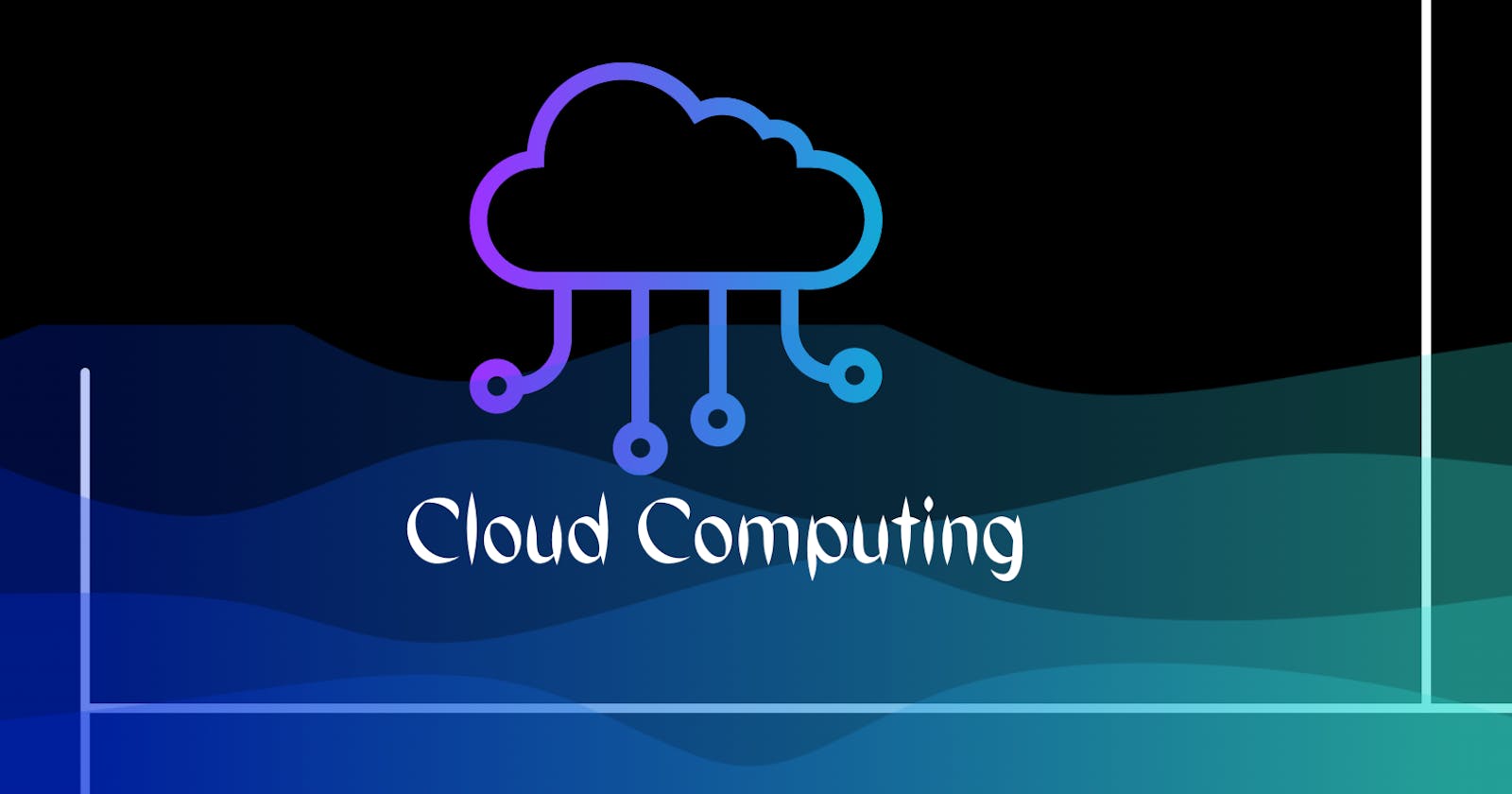What is Cloud Computing?
A brief description of Cloud computing and its services
Cloud Computing
Cloud Computing is the delivery of services such as compute power, storage, networking, analytics and many more services over the internet. It reduces the total cost of operations while having the ability to scale up and down as per the demand.
There are many Cloud Service Platforms available in the market that you can avail as per your requirements. Microsoft Azure, Amazon Web Services and Google Cloud Platform are the most popular service providers, although there are a bunch of other service providers that aren't much popular but provide good services.
Characteristics of Cloud Computing Service
- Scalability
Scalability is the ability of cloud services to allocate or deallocate the amount of resources according to the change in demand.
- Elasticity
Elasticity is considered as the property of Cloud Services to adapt according to the changing workloads and scale dynamically
- Agility
In Cloud Services, there are two ways to provision a resource, either manually via the portal (interface) of the cloud provider or automated through scripts or APIs. In either case, there’s a time between request and response. Agility is the ability to allocate and deallocate (scale) resources and reduce the time between request and response.
- Fault Tolerance
Fault Tolerance is the ability of Cloud Services to remain up and operating without interruption during a component or service failure.
- Disaster Recovery
Disaster Recovery is the ability to recover from an event (such as a natural calamity) that has taken down the service
- High Availability
High availability is the ability of cloud service to keep running with minimum downtime.
Types of Cloud Deployment Models:
Mainly, There are four types of clouds:
1. Public Cloud
We can use any cloud provider such as Azure, GCP or AWS to avail the resources provided by them and have no upfront cost. In Public Clouds, we use shared resources while having an isolated environment.
For instance, we can consider Cloud Services as renting an apartment in a building, you get a separate private space isolated from other users while using the shared resources.
2. Private Cloud
A private cloud is dedicated to and owned by a single organization, from the physical servers (infrastructure) to the software, every single component is managed by the owner organization itself. To set up the private cloud, an organization needs huge capital expenditure (upfront cost).
3. Hybrid Cloud
Hybrid Cloud is considered to be a combination of Private and Public clouds. Here, you perform all operations and tasks over on-premise servers (Private Cloud) and avail the services of Cloud providers to fulfill the requirements of additional features.
4. Multi-Cloud
Multi-Cloud is using the service of multiple cloud providers at a time. This type of cloud system increases the range of resources for the organization as it can utilize the different services provided by the different cloud providers.
This is it for this blog.
Thanks for your valuable time and please have a look at other blogs published by me.
Any sort of feedback or remark is highly appreciated. Feel free to mail me or you can connect with me on Twitter as well.
For additional resources on Cloud Computing you can access the following articles as well:

